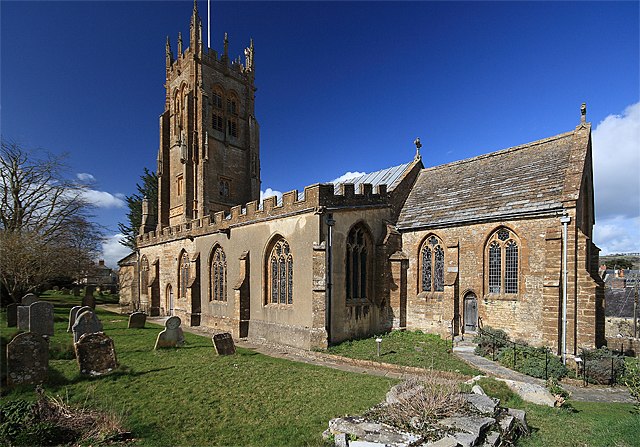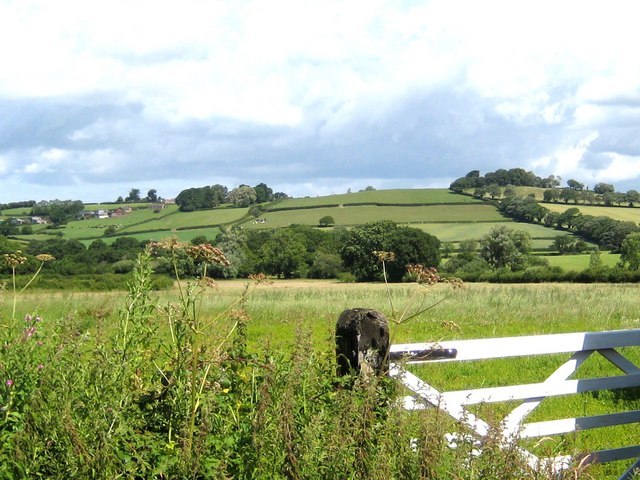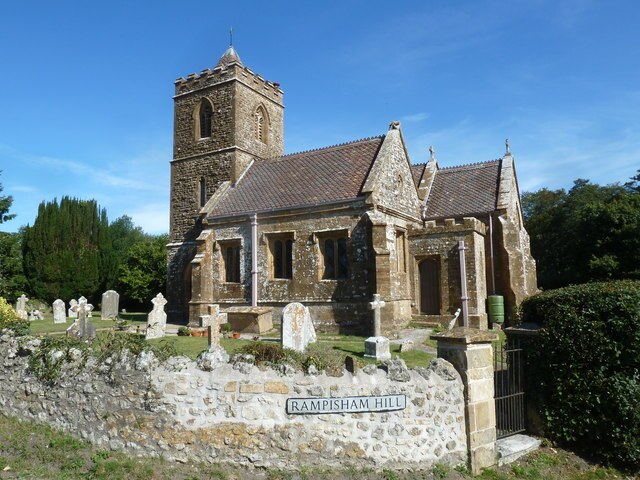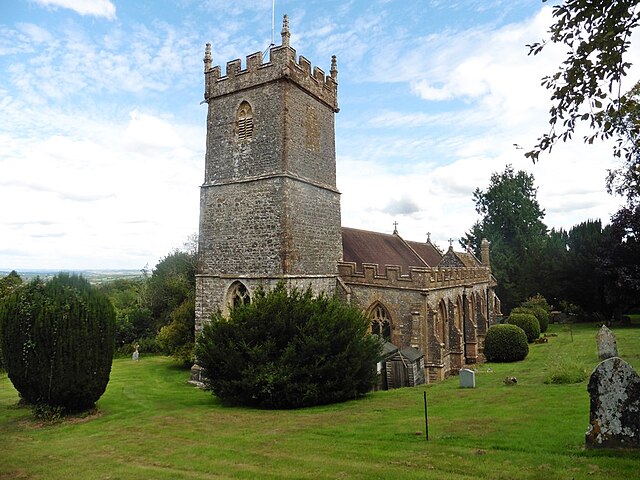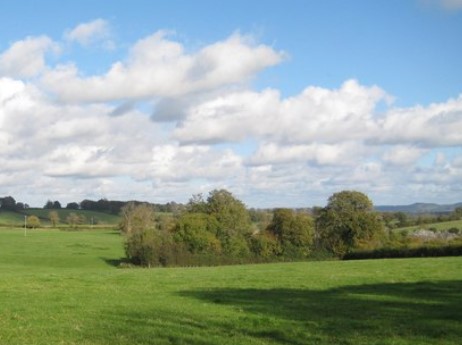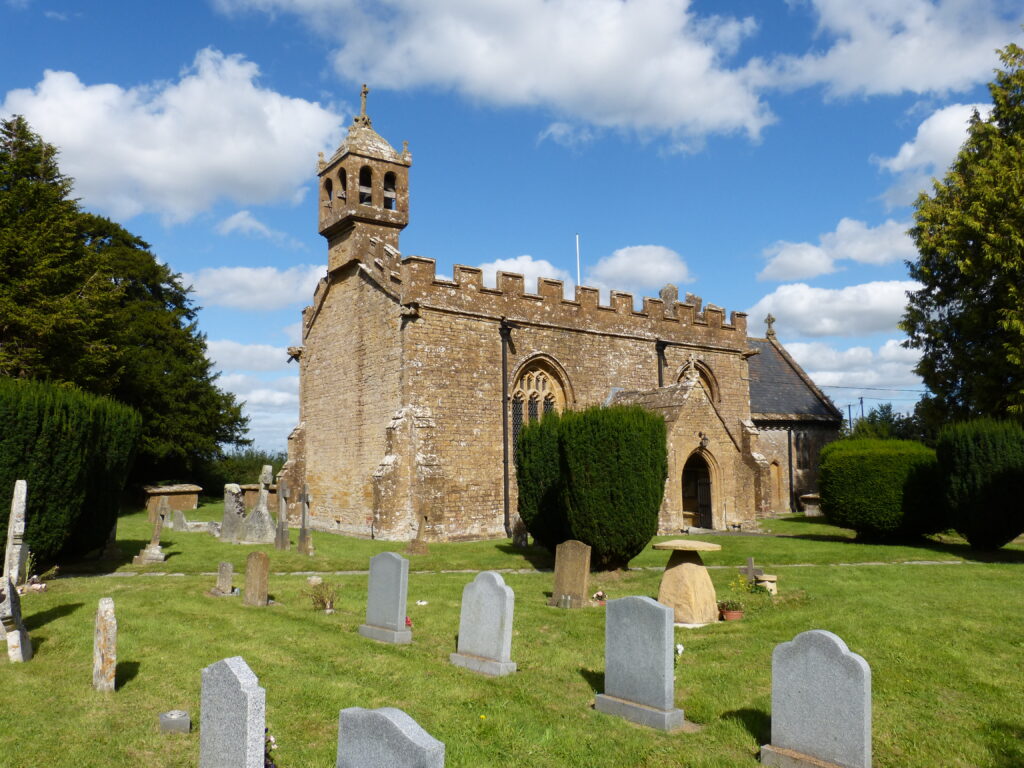Introduction
William Genge was a prominent farmer in 19th-century South Somerset and North Dorset. Born around 1828 in Hardington, he overcame personal tragedies and professional challenges to significantly improve his financial standing. His life story included two marriages, several moves between farms, and active participation in local affairs.
Birth
William was born at Hardington in about 1828, the son of Abraham Genge and his first wife, Sarah Bartlett. His father, an ambitious tenant farmer, managed an extensive farm of 450 acres by 1861.
First marriage
In the late 1840s, William entered into a relationship with Sarah Anne Whitty, the eldest daughter of William Whitty, a farmer from Chapel Marsh, Beaminster. Following Sarah’s pregnancy, the couple wed at Beaminster parish church on 31 December 1849.[1] In the spring of the following year, Sarah gave birth to twins: a boy and a girl. However, the babies were probably born weak, and the boy, William, died in late July.[2] His death took a profound emotional toll on Sarah, causing her to contract dropsy, from which she died at her parent’s home four weeks later on 21 August 1850.[3] One can imagine the tense family discussions that led to Sarah being interred at Corscombe on 26 August, even though her infant son had been interred at Hardington.[4]
Second marriage
After a brief interlude of ten months, William married Frances White, a half-cousin of his first wife, on 20 February 1851 at Hardington parish church. His desire to provide a female carer for his baby daughter, Sarah, probably contributed to this short interval.
Married life at Hardington
By March 1851, William was established as a dairyman living at “Broad,” likely a forerunner to what would become known as Landground Farm. This is evidenced by the 1862 Guardian Valuation, which shows him occupying 50 acres at “Lands Farm,” owned by William Pope.[5]
Genge’s participation in church and civic affairs began at Hardington. He served as an overseer from 1851 to 1853 and as a churchwarden in 1864.[6]
A notable episode in William’s life occurred in 1857 when he intervened on behalf of a neighbour and relative facing legal jeopardy. When Sarah Delamont accused Job Taylor, the village blacksmith, of assault, William and four other Hardington farmers (his father, Abraham, his father-in-law, William White, his cousin, Thomas Genge, and Francis Dawe) came to Job’s defence by signing a letter testifying to Sarah being “very saucy and abusive.” While the magistrates dismissed the letter as evidentially invalid, it may have influenced their verdict, which acknowledged the assault but noted extenuating provocation on Sarah’s part.[7]
In about 1860, William assumed the tenancy of a farm at Hardington Marsh, adding it to his existing holding to make a total of 170 acres, which he ran with the help of three labourers and three boys.[8] The farm (called Hardington Marsh Farm on the 1861 census, but later known as “Grove Farm”)) was owned by William Legg and previously occupied by Ruth Bird.[9]
Hooke
Upon the expiration of his lease on April 6 1866, William and his family relocated to Hooke, where they remained until about 1874.[10] This transition involved the movement of livestock, an action scrutinised by a Dorchester Court under cattle plague regulations. Ultimately, the court deemed the move permissible, as Hardington was not classified as a “proclaimed” parish.[11]
During his tenure in Hooke, William was appointed overseer in both 1866 and 1867 and served as a poor law guardian in 1872.[12] Additionally, in 1872, he was a member of the Bridport Highways Board.[13]
In March 1872, William’s farm was the site of an incident when Lord Sandwich’s gamekeeper caught a poacher with a ferret, setting traps in one of William’s hedges. The poacher, who had previous convictions, received a 14-day prison sentence.[14]
In 1873, William engaged the auctioneers Palmers to organise a series of sales in preparation for his leaving the farm. In February 1873, they sold William’s dairy stock, which fetched between £22 and £25 each.[15] On 24 March 1873, they sold his sheep, implements and machinery.[16] On 26 January 1874, they sold 100 tons of meadow hay in lots.[17]
Corscombe
Following their residency in Hooke, the Genge family moved to Weston Farm in Corscombe, where they lived until 1886. A few years into William’s tenancy, his landlord auctioned the farm at the King’s Arms Hotel, Dorchester. Described in newspaper advertisements as a farm of 534 acres 2 roods and 38 perches, of which all bar 53 acres of coppice was let on a lease at £643 per annum, it comprised a farmhouse with a garden and orchard, a dairy and dairyman’s cottage, good stabling and farm buildings, with standing for forty cows.[18] The farm fetched more than William could afford, assuming he was even interested in buying it; Alfred Pope, a Dorchester solicitor and landowner, paid £15,500 for the farm and an additional 17 acres of land.[19] After the sale, William remained as the tenant at the farm for another two years.
While at Corscombe, William was elected as parish poor law guardian in April 1880, again in 1884, and as an overseer in April 1883.[20] Furthermore, two minor newsworthy incidents occurred. In March 1883, a Beaminster court ordered John Symes, a former labourer of William’s, to pay £5 in damages for unlawfully leaving his employment,[21] and on 2 January 1881, William’s son, William Genge, junior, observed two men with a dog enter a plantation of his father’s farm where rabbits lived. When they saw him, they ran away. However, they were later apprehended and fined 10s each.[22]
While the Genge family were at Corscombe, two significant deaths occurred. On 1 February 1879, William’s father-in-law, William White, died at Halstock Leigh, after which William White’s widow, Frances, came to live with William until her demise in 1892. On 2 November 1880, William’s own father died at Hardington. Significantly, his will made two years earlier, omits any mention of William, suggesting that he and William had fallen out.
William’s departure from Weston Farm was marked by Palmers, the auctioneers, selling fifty cross-bred dairy cows and ten heifers at the farm on 18 February 1886.[23]
East Coker
Next, the Genge family took residence at Wickets Beer Farm in East Coker, a significant 400-acre holding, where they remained until 1893.[24] In 1888, William Genge served as a churchwarden of East Coker and in 1889, he assumed the role of overseer.[25]
Chilthorne Domer
Entering his sixties, William possessed the financial means to acquire the freehold of a modest agricultural estate. At an auction in Yeovil in July 1891, he successfully bid £3,500 for the Manor House in Chilthorne Domer. This estate represented a unique combination of a gentleman’s residence and operational farm, featuring a house, 38 acres of land, walled gardens, lawns, a tennis court, stables, a coach house, multiple outbuildings, and an additional cottage.[26]
Following his move to Chilthorne Domer, William continued his active support for the established church, serving as a churchwarden by 1893.[27]
Son’s death
The family faced a profound loss in March 1898 when Theophilus, William’s eldest son, passed away at the age of 46 due to influenza, acute mania and exhaustion.[28] Theophilus, like his brother and half-sister, had led a relatively insular life, centred mainly around his immediate family, and he died intestate, leaving an estate valued at £199 6s 6d, which was administered by his father.[29]
William’s death
William himself passed away on 1 March 1901, aged 72, leaving an estate with a gross value of £4,824-15s-2d and a net value £1,499-15s-2d.[30] The notable disparity between the gross and net values suggests that he had incurred considerable debts in acquiring the Manor House.
Frances’s later life
Following William’s death, Frances continued to reside at Manor Farm with her son and stepdaughter until her own death on 7 March 1920, at the age of 89. Like her son, Theophilus, she died intestate, leaving an estate valued at £213 19s 8d, which her other son, William, administered.
William the younger, and his half-sister Sarah
In the year following Frances’s death, William Genge the younger married Mary Poole. However, their time together was brief, as William passed away on October 18, 1922, at the Yeovil Nursing Home at the age of 62.
As all the family’s wealth had filtered down to him, he left a sizeable estate valued at £8,239 4s 10d. Despite the overall value, the proceeds from land and buildings yielded only £4,000, indicating possible substantial investments.[31] In his will, he bequeathed to his wife his household effects, £50, and the income generated from his estate for her lifetime while also providing his stepsister an annuity of £20. Upon the death of both his widow and stepsister, he directed his executors to allocate £100 to the children of his late cousin, Walter White, and to distribute the remainder evenly among the Yeovil & District Hospital, the Church of England Missionary Society, and Dr Barnardo’s Homes.[32]
William’s stepsister Sarah, who never married, spent her final years at Fir Villa, Marston Magna, where she passed away on Christmas Day 1926, aged 76.[33] She left a small estate of £232-5s, which she bequeathed to her landlady.
William’s widow, Mary, also died at the Yeovil Nursing Home on 1 December 1932 at the age of 61. Despite the shortness of her marriage to William, she demonstrated loyalty to the Genge family by providing for the maintenance of three family graves in her will: those of her husband and herself, her husband’s father and her husband’s sister.[34]
References
[1] Sarah was 27, and William was 21. The Beaminster marriage register records William’s residence as Beaminster.
[2] The twins, William and Sarah, were baptised at Hardington church on 7 May 1850. William was interred at Hardington on 30 July 1850.
[3] Sarah Genge’s death certificate.
[4] Select Dorset Church of England Parish Registers, 1538-1999. Corscombe was the resting place of Sarah’s maternal grandparents, William and Sarah White.
[5] Hardington Guardian Valuation of 1862.
[6] Hardington jury lists.
[7] Sherborne Mercury, 25 August 1857, p.5. Job Taylor’s late wife, Dinah, was William Genge’s cousin.
[8] Hardington Guardian Valuation of 1862; 1861 census.
[9] Francis Dawe lived at a different, “Hardington Marsh Farm,” which was essentially the farm later known as Marsh Farm.
[10] Dorset County Chronicle, 24 August 1865, p.20.
[11] Sherborne Mercury, 1 May 1866, p.5.
[12] Sherborne Mercury, 17 April 1866, p.7; Dorset County Chronicle, 11 April 1867, p.5; Western Gazette, 26 April 1872, p.8.
[13] Bridport News, 16 August 1872, p.3.
[14] Bridport News, 22 March 1872, p.4.
[15] Bridport News, 14 February 1873, p.3.
[16] Bridport News, 21 March 1873, p.2.
[17] Bridport News, 9 January 1874, p.2.
[18] The sale advertisements state the rent as £650 per annum, but this was probably rounded up as the property report after the sale records a figure of £643; Kentish Mercury, 10 February 1877, p.1; Dorset County Chronicle, 8 March 1877, p.16; London Evening Standard, 21 March 1877, p.8.
[19] Southern Times and Dorset County Herald, 28 April 1877, p.5
[20] Western Gazette, 23 April 1880, p.8; Dorset County Chronicle, 10 April 1884, p.8; Western Gazette, 6 April 1883, p.8;
[21] Western Gazette, 9 March 1883, p.8
[22] Bridport News, 14 January 1881, p.4; Western Gazette, 14 January 1881, p.8.
[23] Western Gazette, 12 February 1886, p.5; Dorset County Chronicle, 8 March 1877, p.16.
[24] Western Gazette, 9 October 1885, p.4; 26 August 1892, p.8.
[25] Western Chronicle, 27 April 1888, p.5; Wiltshire County Mirror, 5 April 1889, p.7.
[26] Western Gazette, 10 July 1891, p1; 24 July 1891, p.6; voters’ lists.
[27] Pulman’s Weekly News and Advertiser, 25 April 1893, p.2.
[28] Death certificate.
[29] Probate calendars.
[30] The will of William Genge, dated 30 November 1894, proved at Taunton on 17 May 1901.
[31] Western Gazette, 12 January 1923, p. 2.
[32] The will of William Genge, dated 23 June 1922, proved at Taunton on 9 December 1922.
[33] The civil registration death index recorded her age as 72, but her birth was registered Q1, 1850.
[34] The will of Mary Genge, dated 9 June 1921, proved in London on 28 December 1932.
